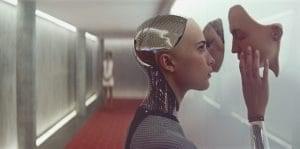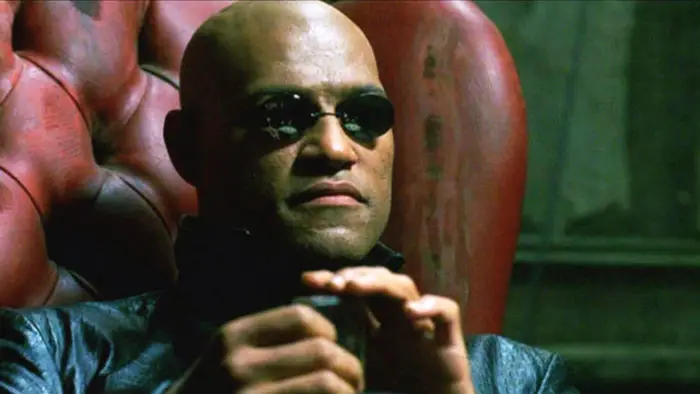
Introduction to AI Movies
From the early days of cinema to the present, artificial intelligence (AI) has been a central theme in many iconic films. Whether exploring the ethical implications of AI or envisioning a future where robots and humans coexist, AI movies have fascinated audiences around the world.
AI movies often delve into the complex relationship between man and machine, raising thought-provoking questions about the nature of humanity and the limits of technology. These films tap into our fears and aspirations surrounding AI, sparking conversations about the impact of artificial intelligence on society.
With advancements in technology, filmmakers have been able to create increasingly realistic portrayals of AI, blurring the lines between fiction and reality. From sentient robots to powerful supercomputers, AI in movies has evolved to reflect our changing understanding of artificial intelligence.
In this ultimate guide to AI movies, we will explore the history of AI in cinema, examine the top AI films of all time, and discuss the impact of AI on Hollywood. We will also delve into the technical aspects of AI in films, explore its representation in science fiction and action genres, and analyze the social commentary found in AI movies.
History of AI in Cinema
The history of artificial intelligence in cinema dates back to the early 20th century, with the first notable AI character being Maria in Fritz Lang’s iconic film “Metropolis” (1927). The portrayal of a humanoid robot in the film set the stage for future AI representations in cinema.
Throughout the years, AI has been a recurring theme in movies, often serving as a source of both fascination and fear for audiences. Films such as “Blade Runner” (1982) and “The Terminator” (1984) explored the ethical implications of AI and its potential to surpass human capabilities.
In the 21st century, advancements in technology have allowed filmmakers to depict AI in more complex and realistic ways. Movies like “Ex Machina” (2014) and “Her” (2013) delve into the emotional and ethical dimensions of AI, challenging viewers to reconsider their perceptions of humanity and technology.
As AI continues to evolve in the real world, its representation in cinema is likely to mirror these advancements. From exploring the boundaries of consciousness to questioning the impact of AI on society, the history of AI in cinema reflects our ever-changing relationship with technology and its implications for the future.

Top 5 AI Movies on Netflix
Looking for a thrilling sci-fi experience that delves into the world of artificial intelligence? Look no further than these top 5 AI movies available on Netflix. From mind-bending concepts to emotional depth, these films are sure to captivate audiences and leave them pondering the possibilities of AI technology.
1. Ex Machina – Venture into a world where the line between man and machine blurs. “Ex Machina” follows a young programmer who is selected to participate in a groundbreaking experiment involving a humanoid AI. As he interacts with the AI, he begins to question the nature of consciousness and the ethical implications of creating sentient beings.
2. Her – In a visionary take on the future, “Her” explores the complex relationship between a man and his AI operating system. Set in a world where AI technology has evolved to interact on an emotional level, this film delves into themes of love, loneliness, and the essence of humanity.
3. Blade Runner 2049 – A sequel to the cult classic “Blade Runner,” this film continues the story of a society divided between humans and replicants – bioengineered beings virtually identical to humans. As a new blade runner uncovers a long-buried secret, he sets off on a quest that challenges the boundaries of identity and AI existence.
4. I Am Mother – Set in a post-apocalyptic world, “I Am Mother” follows a teenage girl raised by a robot named Mother. As the girl begins to question Mother’s teachings, she uncovers dark truths about her past and the origins of humanity, leading to a gripping exploration of AI morality.
5. The Matrix – Enter the iconic world of “The Matrix,” where reality is a simulation created by intelligent machines to enslave humanity. Follow Neo as he discovers the truth about his existence and joins a group of rebels fighting to overthrow the oppressive AI overlords.
Experience the thrill of these top 5 AI movies on Netflix and immerse yourself in the fascinating world of artificial intelligence.

Impact of AI on Hollywood
The impact of artificial intelligence (AI) on Hollywood has been nothing short of revolutionary. With the advancement of technology, AI has played a significant role in shaping the way films are produced, marketed, and consumed. One of the most notable impacts of AI on Hollywood is in the realm of special effects.
AI video enhancers have made it easier for filmmakers to create stunning visual effects that were once only possible with a massive budget and an army of artists. This has not only made films more visually appealing but has also opened up new creative possibilities for filmmakers. For example, UniFab All-in-One is a comprehensive AI video enhancer support video creators to upscale their footages up to 4K HDR.
Social Commentary in AI Movies
AI movies often serve as a reflection of society’s current fears, beliefs, and values. These films use artificial intelligence as a lens through which to explore complex social issues, such as technology’s impact on humanity, the ethical implications of AI, and the consequences of creating intelligent machines.
One of the most significant social commentaries found in AI movies is the fear of loss of control. As AI becomes more advanced and integrated into our daily lives, there is an underlying fear that we may lose control over technology, leading to disastrous consequences. Films like “The Matrix” and “Ex Machina” delve into this fear, portraying AI as a powerful force that threatens to overthrow humanity.
Another prevalent theme in AI movies is the examination of our relationship with technology. These films often question the boundaries between man and machine, and the ways in which technology shapes our lives. Movies like “Her” challenge our perceptions of love and connection in an increasingly digital world, while “Blade Runner” explores the moral ambiguity of creating beings that are both human and artificial.
Overall, social commentary in AI movies allows us to reflect on our own relationship with technology and the implications of creating intelligent machines. These films serve as a cautionary tale, warning us of the potential dangers and ethical dilemmas that may arise as AI continues to evolve.
Additionally, AI has the potential to streamline the filmmaking process, making it faster, more efficient, and cost-effective. From scriptwriting to post-production, AI tools can analyze data, predict trends, and automate tasks, saving filmmakers time and resources.
Another intriguing aspect of the future of AI in cinema is the rise of AI-generated content. With the ability to analyze vast amounts of data and create compelling narratives, AI could potentially write scripts, compose soundtracks, and even direct films. This could lead to a new era of creativity and innovation in the world of cinema.
